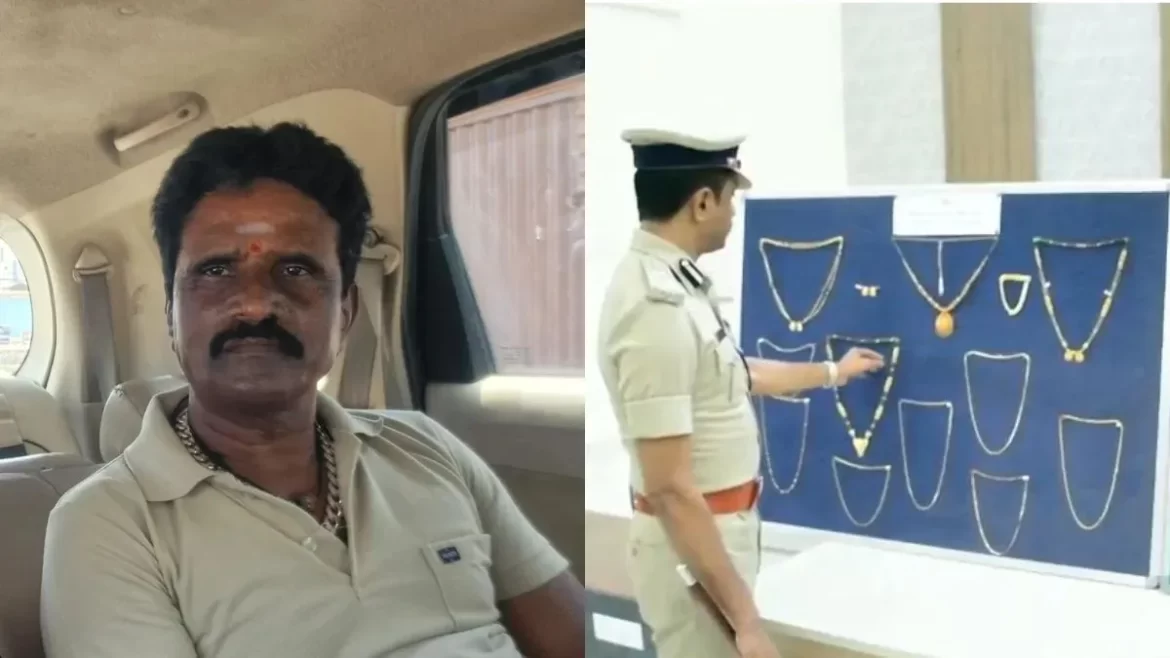In a case that blends crime with misplaced piety, Shivprasad, a notorious thief from Kalaburagi, Karnataka, has been arrested for committing over 260 thefts—all while donating large portions of his stolen loot to temples and charity events. His belief? That charity would protect him from both the law and divine retribution.
Shivprasad specifically targeted wealthy homes, stealing gold, silver, and cash, which he later offered as donations to temples, sponsored religious gatherings, and even hosted free meal events (bhandaara). One such donation included 412 grams of stolen gold, worth around Rs30 lakh, given to temples under the guise of religious merit.
In another high-profile act of deception, he sponsored a massive meal event in Latur, Maharashtra, feeding thousands—many of whom had no idea their benefactor was a wanted criminal.
To stay ahead of law enforcement, Shivprasad used superglue or Fevicol on his fingertips to avoid leaving fingerprints at crime scenes. His double life—a thief by night and a donor by day—allowed him to remain on the run for years.
Kalaburagi Police Commissioner Dr. Sharanappa S.D. described the case as “astounding,” noting how Shivprasad attempted to cleanse his crimes through charity. “He would donate to temples, hospitals, and religious events, believing it would protect him,” the commissioner said.
Shivprasad was finally caught in the act of donating, ironically during one of his “philanthropic” activities. While he hoped to win favor from the divine and the community, his long trail of crimes eventually led the police to him.
This bizarre case underscores how faith, when misguided, cannot absolve one from the consequences of crime. Shivprasad’s story is a striking example of moral contradiction—where the path to redemption was paved with theft.
